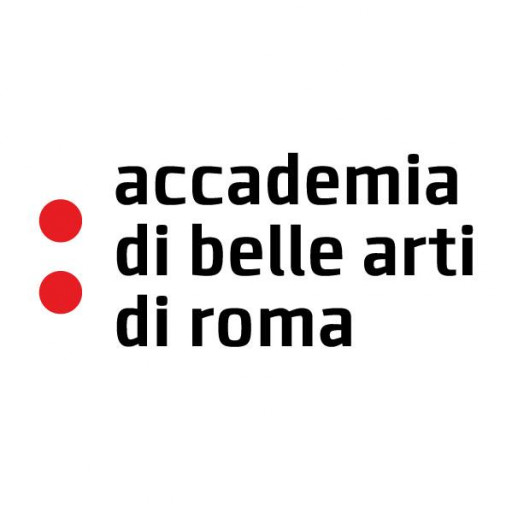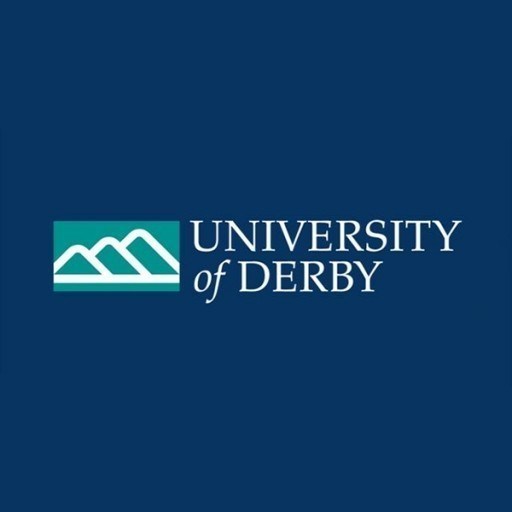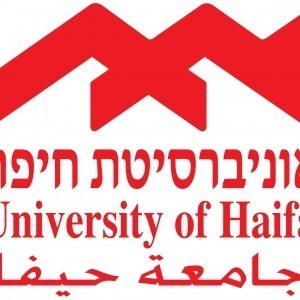Photos of university / #universityofkansas
Occupational Therapy at the University of Kansas is a comprehensive and dynamic program designed to prepare students for a rewarding career in helping individuals of all ages regain independence and improve their quality of life. The curriculum emphasizes a blend of rigorous academic coursework, hands-on clinical experiences, and research opportunities, ensuring graduates are well-equipped to address diverse healthcare needs. Students will explore core areas such as human development, psychopathology, therapeutic intervention techniques, and the use of assistive technology, all within a framework that promotes critical thinking and evidence-based practice. The program fosters a collaborative learning environment, encouraging engagement with faculty who are experts in their fields, as well as active participation in community-based projects and internships. Emphasizing cultural competence, ethical practice, and innovative approaches to therapy, the curriculum prepares students to serve a wide range of populations, including those with physical, cognitive, emotional, or developmental challenges. The University of Kansas Occupational Therapy program also emphasizes lifelong learning, professional development, and leadership skills, positioning graduates to advance in clinical practice, research, or academia. Upon completing the program, students are eligible to sit for the National Occupational Therapy Certification Exam and pursue licensure to practice as a licensed occupational therapist. The program aims to develop compassionate, skilled, and innovative practitioners committed to making a positive impact on individuals and communities through personalized, client-centered care.
The Master of Occupational Therapy degree program at KU is a full-time, three-year course of study at the graduate level and includes academic, practicum, and fieldwork preparation. The program has been designed to provide students with skills necessary to work as an entry-level occupational therapist in a range of possible settings. Practicum and fieldwork experiences are offered throughout the Kansas City community, the state of Kansas and, in some cases, in states other than Kansas.
Curriculum:
| OCTH 601 | Human Anatomy | 6 |
| OCTH 602 | Orientation to the Occupational Therapy Profession | 3 |
| OCTH 605 | Theory and Practice in Occupational Therapy | 2 |
| OCTH 622 | Analysis and Adaptations of Occupations - I | 4 |
| OCTH 630 | Practicum - I | 2 |
| OCTH 635 | Lifespan Development from an Occupational Perspective | 4 |
| OCTH 645 | Contexts of Occupation | 2 |
| OCTH 655 | Neuroscience Analysis of Occupational Performance | 3 |
| OCTH 662 | Physical Considerations in Facilitating Occupational Performance | 4 |
| OCTH 670 | Practicum - II | 2 |
| OCTH 672 | Psychiatric Considerations in Facilitating Occupational Performance | 3 |
| OCTH 682 | Analysis and Adaptation of Occupations - II | 2 |
| OCTH 690 | Evaluation and Assessment of Occupational Performance | 2 |
| OCTH 704 | Planning and Intervention in Occupational Therapy | 2 |
| OCTH 710 | Service Management: Delivery Systems | 1 |
| OCTH 720 | Occupational Therapy Practice Models | 7 |
| OCTH 725 | The Research Process | 1 |
| OCTH 730 | Practicum III | 2 |
| OCTH 750 | Case-Based Clinical Reasoning | 2 |
| OCTH 755 | Issues and Trends Seminar | 1 |
| OCTH 760 | Professional Development and Leadership in Service Management | 3 |
| OCTH 765 | Family and Community Service Systems | 2 |
| OCTH 770 | Level II Fieldwork, Part 1 | 6 |
| OCTH 775 | Level II Fieldwork, Part 2 | 6 |
| OCTH 776 | Population-Based Clinical Reasoning | 3 |
| OCTH 783 | Evidence-Based Practice | 2 |
| OCTH 790 | Research Practicum and Professional Writing | 3 |
| Required elective course | 3 | |
| Total Hours | 83 | |
Admission Requirements
Applications may be submitted with course work still in progress but must indicate the student's plan for completion prior to entering the program. Students cannot complete prerequisite courses while concurrently enrolled in MOT program course work.
-
Undergraduate Degree
A bachelor's degree from a regionally accredited institution must be completed prior to start of program classes. The degree can be in any field. -
Required Prerequisite Course work
The following courses are required: Abnormal psychology, human development, statistics, ethics, human physiology, and human anatomy with a lab. Each course must be a minimum of three credit hours. -
Grade Point Average
Minimum GPA = 3.0 on a 4.0 scale. Applicants must have a minimum 3.0 GPA in cumulative undergraduate course work. In addition, a minimum 3.0 GPA average is required for the specific prerequisite courses (see right). A passing grade of "C"or higher is required in all prerequisite courses; courses resulting in pass/fail or credit/no-credit are not accepted. Information documented on student transcripts will be used to calculate all grade point averages.
Scholarships
Barbara Reber Umlauf Scholarship
The Barbara Reber Umlauf Memorial Scholarship is a self-nominating scholarship, which is awarded each year to selected full-time students enrolled in the MOT program. The recipients must be members of the Student Occupational Therapy Association, have participated in both volunteer and work experiences, and have a competitive grade point average. Applications will be sent to students in the spring, and awarded in the following fall and spring semester.
Kathlyn ‘Kitty’ Reed Occupational Therapy Scholarship
Dr. Kathlyn ‘Kitty’ Reed established this scholarship to recognize a deserving occupational therapy student. The recipient must be an outstanding graduate student. This is not a self-nominating scholarship. The OT Scholarship Committee determines the recipient of this scholarship.
Ellen Roose Scholarship
The Ellen Roose Scholarship is for a deserving graduate teaching assistant occupational therapy student. This is not a self-nominating scholarship. The OT Scholarship Committee determines the scholarship recipient.
Andy Thompson Award
Established by the family of Andy Thompson, a KU OT graduate, the Andy Thompson Award is awarded to a third year graduating occupational therapy student. This is a self-nominating award. The recipient of this award must possess an interest in serving individuals with traumatic brain injury or psychiatric disabilities. Applications will be sent to qualifying students and the recipient awarded at graduation.
Community Internship Opportunity
Since the early 1990’s, the KU Department of Occupational Therapy Education has collaborated with local organizations to provide graduate student internship opportunities which may be eligible for in-state tuition. Minds Matter, LLC is a local organization which provides cognitive and behavioral training and consulting while supporting trainers and therapists who work with people with disabilities within their communities. Students who are part of this paid internship work with men and women in individual home and community settings to meet independent living needs.
Occupational Therapy at the University of Kansas is designed to prepare students for a rewarding career in helping individuals of all ages develop, recover, and maintain the skills needed for daily living and working. The program offers a comprehensive curriculum that combines classroom instruction, laboratory training, and fieldwork experiences to ensure students acquire the theoretical knowledge and practical skills necessary for effective practice in diverse healthcare settings. The Master of Science in Occupational Therapy (MSOT) degree prepares graduates to work with populations including children, adults, and older adults, addressing a wide array of challenges such as physical disabilities, mental health issues, and developmental disorders.
The curriculum emphasizes evidence-based practice, cultural competence, and the integration of emerging technologies to enhance therapeutic interventions. Students participate in supervised fieldwork placements across a variety of settings, such as hospitals, outpatient clinics, schools, and community health centers, enabling them to apply their learning in real-world contexts. The program also encourages participation in research activities and professional development opportunities to foster lifelong learning and adaptability in a rapidly evolving healthcare landscape.
The faculty comprises experienced educators and clinicians dedicated to mentoring students and advancing the occupational therapy profession through research and community engagement. Admission requirements typically include a strong academic record, relevant experience, and a demonstrated interest in occupational therapy. Graduates of the program are eligible to sit for the National Board for Certification in Occupational Therapy (NBCOT) qualification exam, which is necessary for licensure to practice in the United States. The program maintains accreditation from the Accreditation Council for Occupational Therapy Education (ACOTE), ensuring compliance with national standards and quality assurance.
Beyond classroom and clinical instruction, the University of Kansas promotes interdisciplinary collaboration, promoting holistic approaches to patient care. Students are also encouraged to participate in community service and outreach initiatives to promote health, wellness, and accessibility for underserved populations. The program's goal is to equip students with the competencies required for professional practice, leadership roles, and ongoing contributions to the field of occupational therapy.
Overall, the Occupational Therapy program at the University of Kansas is committed to preparing well-rounded, competent, and compassionate practitioners who can make a meaningful difference in the lives of individuals and communities through occupational therapy.







